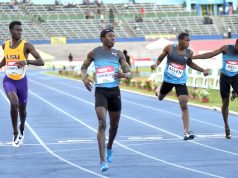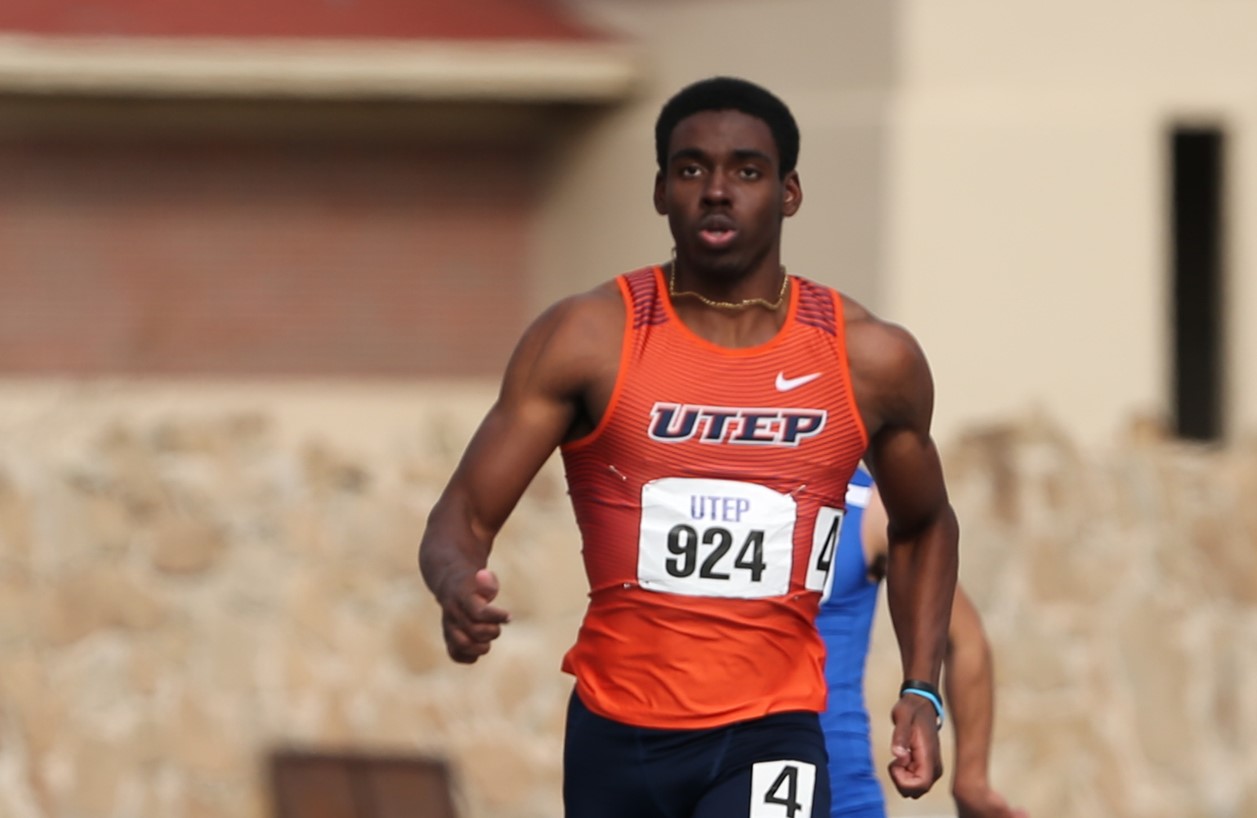Dr Rachel Irving, Special to TrackAlerts.com
The Jamaica’s Boys and Girls Championships ‘CHAMPS’ is a feeding tree for future track and field elite athletes. It is from CHAMPS that we expect to emerge young talents who will eventually replace Usains Bolt and Shelly-Ann Fraser-Pryce.
Young Javon Francis of Calabar High School is such an emerging talent. He is the brave youngster who propelled the men 4 x 400metres relay team from fifth to second position at the 2013 World Championships in Moscow.
On Saturday 28th March, 2014 you could not imagine how happy Jamaicans were when Javon ran the Class One 400 metres final in a blistering 45 seconds to demolish the record of 45.35 seconds set by Usain Bolt, eleven years earlier. At the end of the superb run, people started to get a little worried when they saw the youngster limping.
Many sport aficionados said he was carrying a niggling injury from a meet held in February. Yet in less than two hours, Javon was back on the track in the 200 metres final. What on earth was his coach thinking? It is senseless to have the muscles of a young athletes like Francis damaged because of overwork. After that blistering record breaking 400 metres hydrogen from muscle lactate would have accumulated in his system making it oxygen deficient or acidic. This must have been obvious because of the muscle cramps after the 400 metres race pointing to inflamed or fatigued muscles.
The cramps also indicated depleted muscle energy stores that needed refueling and rest to revert back to normal race level. Javon is in a transitional stage in his development and must be guided properly if he is to excel in the future. I felt Javon’s coaches convinced him to test the race stamina of Jevaugh Minzie of Bog Walk High School who had earlier done 10.16 seconds in the 100 metres. Minzie was the clear favorite in the 200 metres final.
Zharnell Hughes, the Kingston College stand out and gold medal winner of the 100 metres at 10.12 seconds who had broken Yohan Blake 100 metres record of 10.21 seconds had pulled out due to injuries so Minzie was the man to beat. The administrators of Champs cannot leave the welfare of athletes to individual schools. Schools are trophy and medal focus during CHAMPS and the health of athletes is secondary.
The Inter-secondary School Association (ISSA) or administrators of CHAMPS must take charge of the overall welfare of these young athletes. Too many athletes have suffered injuries that have derailed their promising careers. The talented Christiana Williams from Edwin Allen is one such person. She has just resurfaced at CHAMPS to crop the class 1, 100metres in 11.19 seconds after suffering some debilitating injuries which could been prevented had she not been overworked. The only person to have ever gone faster than Christiana in Class 1 was Veronica Campbell- Brown.
Young, emerging talents like Javon and Christiana must be protected, they are national assets. ISSA has instituted a policy where students cannot participate in CHAMPS if they have less than a 45% average in four subjects. They must also institute a policy where an overworked athlete is withdrawn from further competition during CHAMPS.
There are ways to do simple health checks. Modern equipment can detect overworked muscles even if coaches insist that their athletes are fine. An athlete who complains of muscle cramps after any race must be check for lactate overload using a simple lactate analyzer.
The lactate analyzer costs less than two hundred and fifty United States dollars (US$250.00). If the lactate level is above a threshold amount then the athlete should be pulled and allowed to rest for a few hours before competing again. So many mishaps can be prevented by proper management of Jamaica’s young talented athletes.
The administrators of CHAMPS should also invest in a defibrillator so that athletes who developed respiratory problems due to exhaustion can be dealt promptly before any catastrophe sets in. The administration of CHAMPS owes these athletes more than a crowded stadium during the event. The yearly CHAMPS is big money business.
Dr. Rachael Irving, Senior Research Fellow in the Department of Basic Medical Sciences – Faculty of Medical Sciences at University of the West Indies.












